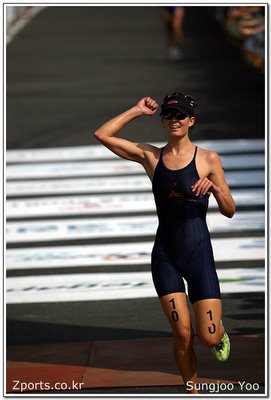
Yesterday
Cycle: 1:49
Distance: 48.7km
Average HR: 1425 highest hills in Bloemfontein
Total calories: 937
Today
Run: 1:11
Distance: 11.5km
Average HR: 153
Calories: 1236kcal.
Note how the workout on top is 30 minutes longer, and yet the calories consumed when running remain almost a third higher, than cycling.
Take care of your engine and it will run for a long time
Today the number of obese Americans is greater than the population of Spain. It’s not difficult to find people who are overweight. In Western society, and increasingly in the East too, they outnumber those who aren’t. It’s been called a disease, and if it is, then here is the cure.
‘A day is either a day that you went running, or didn’t go running.’
Like many endurance athletes, I did not start off being health-conscious, but performance-conscious. The result of pursuing goals like a 3 hour marathon or a 35 minute 10km, is that the runner finds he has to take care of the engine. He has to become health aware and practice a healthy lifestyle to stand the best chance of success.
Even as a younger man, lightness becomes important during racing, and so certain fatty foods must be reduced from the diet, especially ice-cream, boerewors, excess butter and margarine. Over a period of time it also becomes clear that simple sugars cause an uneven flow of energy, and are best avoided as far as possible. These include drinks such as fruit juices and sodas. Tea or coffee should be consumed with honey instead of sugar, the same principle being applied to breakfast cereals. Meals should be eaten 2-3 hours before exercising; otherwise there is a inefficient conflict between in energy absorption/digestion and release. It may seem that these habits originate in the diet, but actually they are driven over a period of time by the experience of finding greater fuel efficiency in the body. Thus, running, especially running towards a goal, drives changes in the diet. Without a goal, these changes will be more difficult, either to maintain or even rationalize.
So don’t just run, set a goal, whether to run a race, or a certain distance, or your regular route in a certain time. And then dedicate weeks of training to the pursuit of that goal.
Going into my 30’s, I’ve found that a reasonable diet without exercise isn’t enough. This is quite a shocking discovery. It means that the average, or conventional diet, makes us fat. It also means that exercise and fitness is not an option – it ought to be a lifestyle for all, for the duration of our lives. What ever made us think that we could spend the 2nd half of our lives watching TV and being, essentially, sedentary?
Breslow (1979) has shown a strong correlation between longevity and physical health according to these 7 habits:
- sleeping 7-8 hours at night
- drinking alcohol in moderation or not at all
- avoiding smoking
- eating breakfast
- eating regularly
- controlling body weight by eating moderately
- exercising regularly
It should be obvious that regular exercise necessarily drives a number of the imperatives mentioned above. If you exercise regularly you will eat regularly, including breakfast, and most disciplined runners will find excessive alcohol consumption and smoking impractical. Regular exercise is also well known to counteract insomnia.
Why running? Running is the most accessible exercise, and arguably, the cheapest. It can be done almost anywhere, with the minimum of infrastructure. People who complain that they are susceptible to injury should start off taking long walks.
One of the most powerful and underestimated effects of exercise in general, and running in particular, is its capacity to provide stress relief and flush out depression. Depression is associated with physical inactivity by numerous authors. It is a cheap and effective treatment, but requires at least a spark motivation or a glimmer of will from the depressed person. Once established, this capillary of power can be enlarged (by training with more discipline and regularity) into a major energizing channel.
If depression is associated with physical inactivity, the opposite is therefore that being fit makes us happy. Being healthy makes us happy. Being thin and looking good helps us to enjoy ourselves. The world has become a strange place; one where we find we commonly forget the obvious. It is a world of convenience, where buying a burger leads to instant weight gain. But running is just as easy, and just as convenient. Running is as close to you as your front door. Whoever coined the phrase ‘run for your life’ may not have been holding a gun. Perhaps he or she was tying the laces to a newish pair of running shoes. Shouldn’t you be doing the same?
Background for this text was sourced in The Lore of Running, by Tim Noakes.
No comments:
Post a Comment